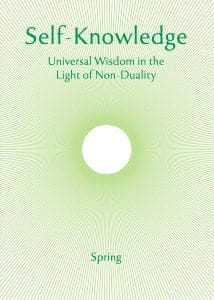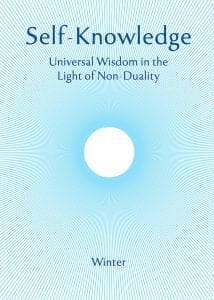The Real Rest
To the seeker of wisdom, the word ‘rest’ has a deep and growing meaning. The familiar meaning of rest as cessation of activity in order to recover our strength and freshness is not discarded, but the rest promised is shown to have a deeper source—a source related to the ultimate truth of what we are.…
Read MoreThe Mandukya Upanishad
The Mandukya is the shortest of the main Upanishads, and its twelve verses deal with a single subject: how to awaken to our intrinsic identity with Brahman, the Absolute, aided, particularly, by practices based on the syllable aum. The Upanishad begins: The syllable aum is all this… All that is past, present and future is…
Read MoreNon-Duality and My Life in the World
Question: I feel attracted by the non-dual ideas. Yet, if I were to lead such a life, would not my worldly affairs suffer? If I am wholly devoted to my mundane duties, my soul starves and feels restless. What do you recommend? Reply: When people follow these teachings, they find that continuous worship can and…
Read MoreSimple Factors of Joy
Leaving aside the metaphysical flights of the Advaita, let us consider the practical side of it. Every human being has a deep- rooted desire to be peaceful and happy and to avoid pain. Peace and happiness are not negative qualities; they are positive achievements. You have to pursue them daily and in all seriousness or…
Read MoreIs the World an Illusion?
Some text books on non-dual philosophy tell us that Shankaracharya designated the ultimate Reality by the term ‘nirguna Brahman’ or quality-less Brahman. They say he thought this was quality-less, changeless and beyond the realm of cause and effect. If we are to look, therefore, in his system for the cause of the universe of qualities…
Read MoreThe Truth-bearing Mind
Perhaps Aristotle is right when he says that the truth expressed by poetry is profounder than the truth expressed by history because it is a more general truth and more universally applicable. When one considers the profound knowledge of human nature which we find for instance in Shakespeare’s plays or Tolstoi’s novels, we can see…
Read MoreWhat Did Descartes Certainly Know?
It is well-known that the philosopher Descartes, while searching for some truth beyond all doubt, observed: Je pense, donc je suis. He restated this idea in various places, once in Latin, as: Cogito, ergo sum. The phrase is widely known as The Cogito and is usually translated into English as ‘I think, therefore I am’.…
Read MoreBasho’s Pilgrimage
Many would regard Basho (1644-1694) as the foremost Japanese poet. His poems and written works—chiefly short travel diaries—are regarded as classics. Basho is of interest to students of the non-dual teachings because his life was a quest for ultimate fulfilment, and his writings, with their freshness and beauty, often contain deep insights. By birth and…
Read MoreSelf-Knowledge Journal – Spring 2025
Subscribe or enrol for free guest access to read all of this article and Self-Knowledge online. Already subscribed or enrolled? Log in:
Read MoreGiordano Bruno, Friend of Truth
It is precisely among the heretics of every age,’ wrote Albert Einstein, ‘that we find men who were filled with the highest kind of religious feeling, and were in many cases regarded by their contemporaries as atheists.’ These words are well applied to Giordano Bruno, the Italian philosopher and poet, who was burnt at the…
Read More


